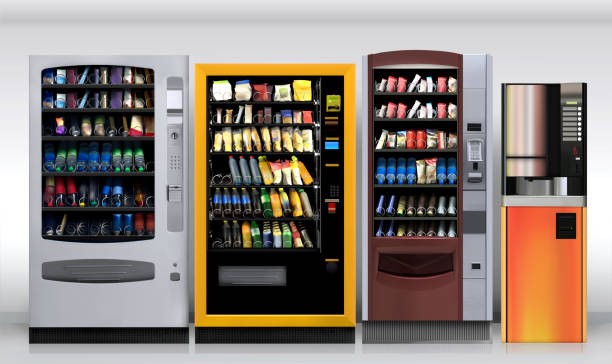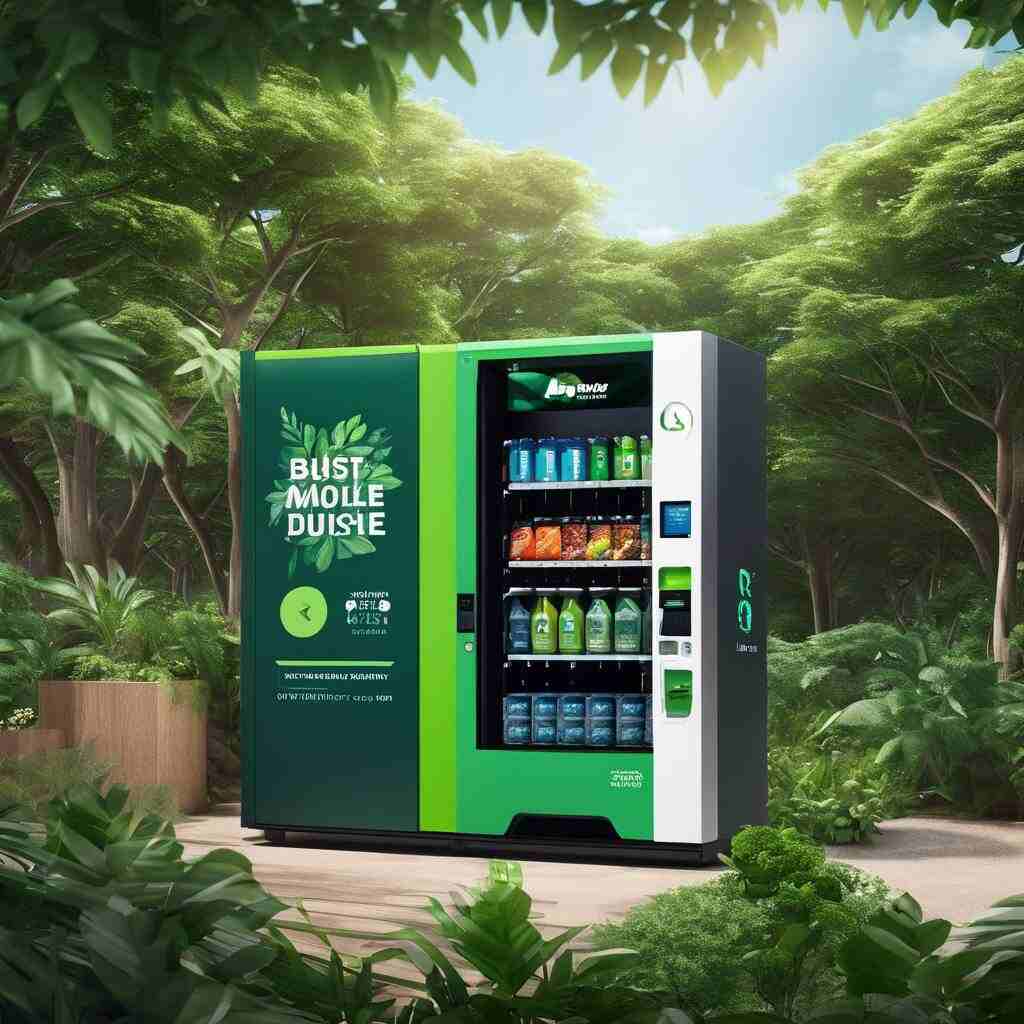Vending machines have been a staple of modern convenience, offering snacks and beverages at the push of a button. However, as the world grapples with plastic pollution, food waste, and the environmental cost of packaging, a question arises: can vending machines evolve to support a zero-waste or refillable snack model? Emerging trends in technology, sustainability, and consumer behavior suggest that a revolution in vending may be on the horizon.
The Waste Problem: A Global Perspective
The global snack industry produces millions of tons of plastic waste annually. Traditional vending machines dispense individually wrapped snacks and bottled drinks, many of which end up in landfills or oceans. According to the United Nations, only 9% of all plastic waste ever produced has been recycled, with the majority either incinerated or accumulating in the environment. Additionally, single-use packaging contributes to carbon emissions from production and transportation.
In response, governments worldwide are implementing stricter regulations on plastic use. The European Union’s Single-Use Plastics Directive, for example, bans certain disposable items, while countries like Canada, India, and Kenya have also introduced plastic bans. These measures create an urgent need for alternative solutions in industries that rely on single-use packaging—vending included.
Revolutionizing Vending with Zero-Waste Models
To meet the growing demand for sustainable solutions, companies are developing zero-waste vending concepts that prioritize reusable and biodegradable packaging. Several key innovations are paving the way for a greener vending industry:
Bulk and Refillable Snack Dispensers
One promising alternative to traditional vending machines is the use of bulk dispensers, similar to those found in zero-waste grocery stores. Customers could bring their own reusable containers or use compostable pouches provided at the machine. These dispensers would work by measuring out snacks based on user selection, reducing waste significantly.
For example, Switzerland-based company Unpackaged has introduced vending machines that dispense nuts, granola, and dried fruits into refillable containers. Similarly, Algramo, a Chilean company, uses smart vending stations that allow consumers to refill their own reusable containers with household staples like rice and detergent, reducing single-use packaging.
Edible and Biodegradable Packaging
Another innovative approach is the integration of edible and biodegradable packaging. Companies like Notpla and Loliware are developing algae-based films and biodegradable alternatives to plastic packaging. Vending machines could potentially distribute snacks in wrappers made from seaweed-based materials that decompose naturally or can be eaten along with the snack.
Japan has already pioneered the use of edible wrappers in the confectionery sector, with companies like Morinaga experimenting with rice paper packaging for candies. Applying this concept to vending machines could drastically cut down on plastic waste.

Smart, Reusable Container Programs
Incorporating smart technology into vending machines allows for innovative refillable container programs. Using RFID (Radio Frequency Identification) or QR codes, vending machines could track and incentivize the return of reusable packaging. For instance, a user could purchase a snack in a reusable container, scan it, and return it to any participating machine for a deposit refund.
A working example is Germany’s Pfand system, where beverage containers are returned for a small refund, drastically increasing recycling rates. Startups like Loop have introduced similar systems for groceries, and a vending machine adaptation could follow suit.
Technological Innovations Supporting Sustainability
Advancements in digital technology are playing a crucial role in transforming vending into a sustainable business model. Key developments include:
AI and IoT for Inventory Management
Artificial intelligence (AI) and the Internet of Things (IoT) can optimize vending machine restocking to minimize food waste. AI-powered sensors can track expiration dates and inventory levels in real-time, reducing unnecessary replenishment trips and ensuring that products are sold before they spoil.
Japanese vending companies like DyDo and Fuji Electric already utilize IoT to manage inventory and energy use efficiently. Expanding this approach to include sustainability metrics, such as tracking packaging waste and user refill patterns, could further enhance eco-friendly vending practices.
Blockchain for Transparency and Waste Reduction
Blockchain technology can help vending machine operators trace the lifecycle of products and packaging. By embedding blockchain systems into vending transactions, consumers can verify the sustainability credentials of the products they purchase. This transparency could encourage more responsible consumption habits and hold manufacturers accountable for their environmental impact.
Solar-Powered and Energy-Efficient Machines
Sustainability in vending isn’t just about packaging. Traditional vending machines consume substantial amounts of electricity, contributing to carbon emissions. Companies are now developing solar-powered vending machines to reduce their environmental footprint.
For example, Coca-Cola has piloted solar-powered vending machines in remote locations, reducing energy reliance while maintaining service availability. Coupling this with zero-waste snack options would create a fully sustainable vending model. Also Read>>>>

Consumer and Business Adoption| Eco-Friendly Vending
Despite the promising advancements, challenges remain in widespread adoption of zero-waste vending. Key hurdles include:
- Consumer Behavior: Many people are accustomed to the convenience of single-use packaging. Encouraging them to carry reusable containers or participate in return programs requires behavioral shifts, which may take time and incentives to achieve.
- Machine Retrofitting Costs: Transitioning existing vending machines to accommodate bulk dispensers or biodegradable packaging involves significant investment. However, businesses could offset these costs by leveraging government incentives and consumer demand for sustainable options.
- Food Safety Regulations: In some countries, food safety laws mandate individually wrapped items to prevent contamination. Companies will need to work with regulators to establish standards that balance hygiene with sustainability.
The Future of Eco-Friendly Vending
Despite these challenges, the momentum toward sustainable vending solutions is growing. Cities and businesses are becoming more eco-conscious, and consumers are increasingly demanding greener alternatives. Companies that invest in zero-waste vending technologies today will likely gain a competitive advantage in the evolving marketplace.
Looking ahead, we can expect:
- Wider adoption of refillable vending solutions as zero-waste retail gains mainstream traction.
- More partnerships between vending machine operators and sustainability startups to create innovative packaging alternatives.
- Advancements in AI-driven sustainability tracking to optimize waste reduction efforts.
The Greener Vending Revolution
The vending machine industry has long thrived on convenience, but with climate change and plastic pollution at the forefront of global concerns, sustainability must become a priority. Through refillable dispensers, edible packaging, AI-driven inventory management, and solar power, vending machines can be transformed into an environmentally friendly solution rather than a waste-generating problem.
The journey towards zero-waste vending is just beginning, but with technological innovation and shifting consumer attitudes, the dream of a sustainable vending future is closer than ever. The next time you grab a snack from a vending machine, imagine a world where that machine offers waste-free, refillable, and eco-friendly options—because soon, it just might.
1 thought on “Eco-Friendly Vending: Can Machines Offer Zero-Waste or Refillable Snack Options?”